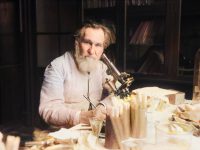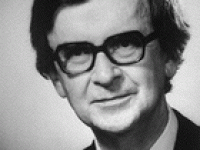Ilya Mechnikov and the Discovery of Macrophages
On May 16, 1845, Russian biologist, zoologist and Nobel Laureate Ilya Ilyich Mechnikov was born. He is best known for his pioneering research into the immune system. In particular, Mechnikov is credited with the discovery of macrophages in 1882. Mechnikov received the Nobel Prize in Medicine in 1908, shared with Paul Ehrlich, for his work on phagocytosis.[4] “The duration of the life of men may be considerably increased. It would be true progress to…
Read more






